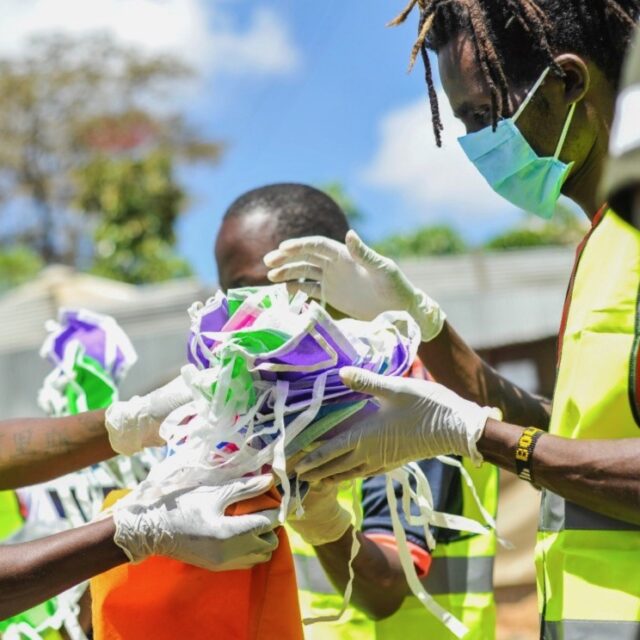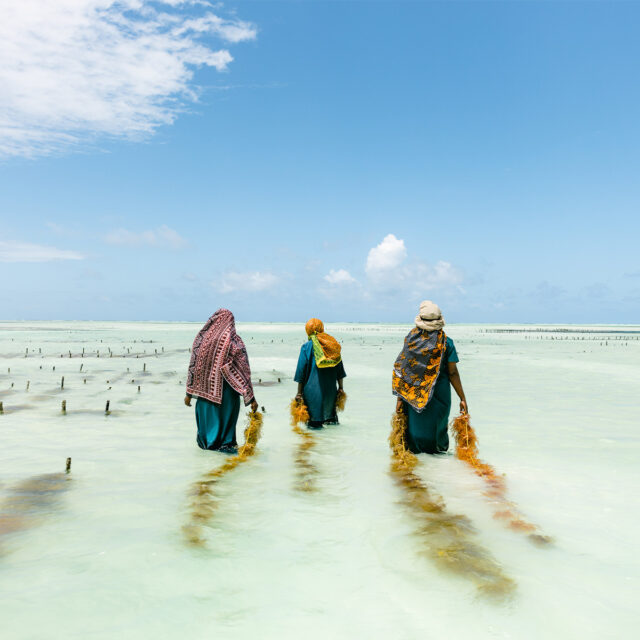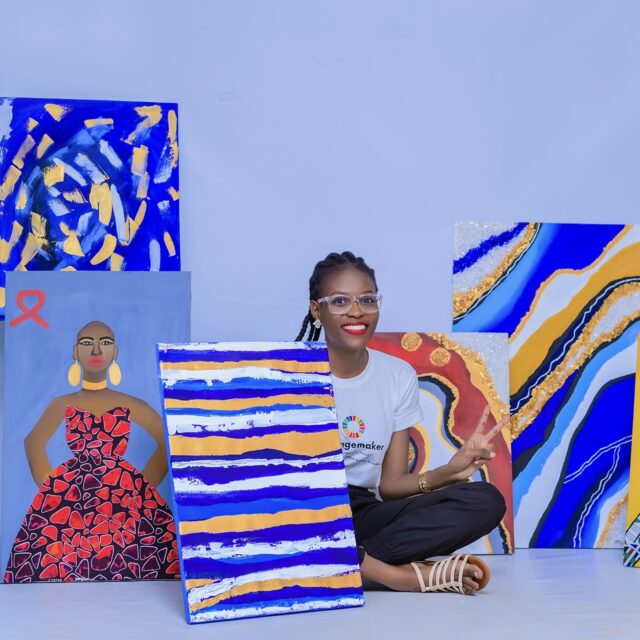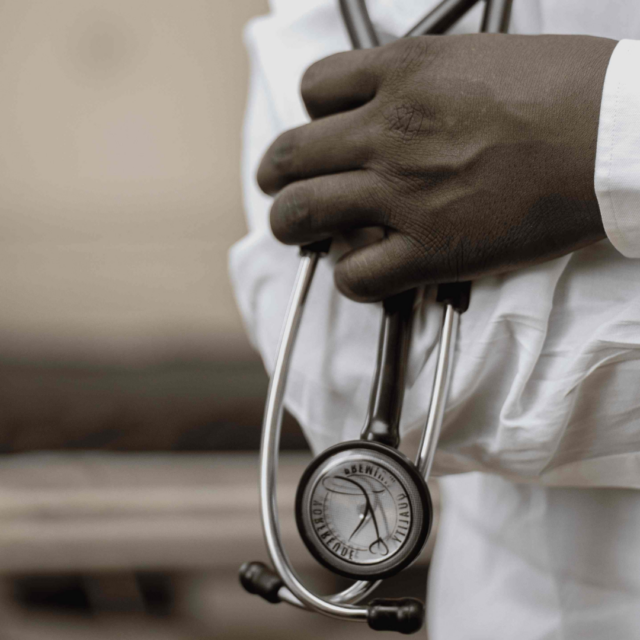The COVID-19 pandemic has changed every corner of the world. Everyone has been pushed to action, in protecting themselves and their community, whether it is by wearing masks themselves or by social distancing. The global and community outreach during this pandemic have been crucial in keeping everyone safe and reminding us that we’re all in this together.
At ONE, our activists and champions are exemplifying the leadership and service we need to tackle this global pandemic.
Carine Umutoniwase is a youth activist and a ONE Champion in Kenya. Through her organisation Footprints for Change she reaches her community through food drives and health awareness campaigns on the COVID-19 virus.
We’ll win this if we are united in the fight against COVID-19 and combine our efforts to support the less fortunate. — Carine
Wondwossen Amsalu Misrak, a ONE Champion in Ethiopia, founded an organisation called Synergy for Community Development. He has worked for many years with vulnerable groups in his region, Dire Dawa.
This is the first time that humanity is united and collaborating in its fear of a common enemy. — Wondwossen
We asked Carine and Wondwossen some questions about their initiatives, challenges and misconceptions they’ve faced, and their messages of hope. Here’s what they had to say:
What is the government currently doing for your community in fighting COVID- 19?
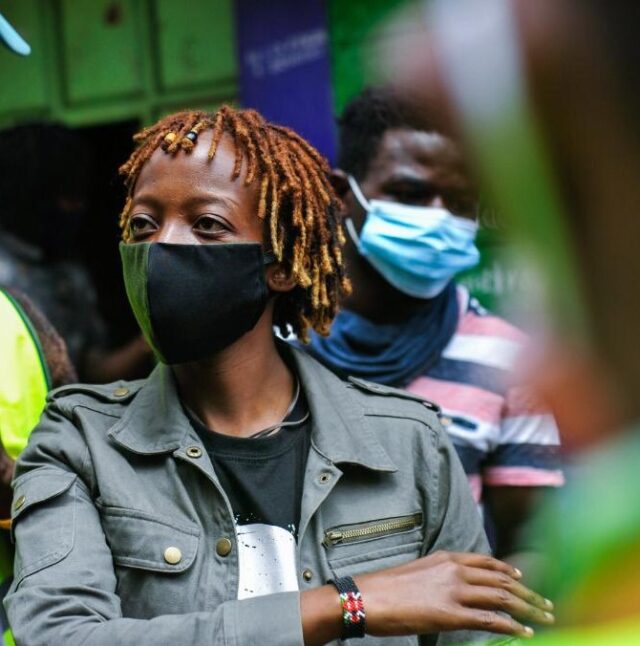
Carine: Government interventions in the informal settlements have been scarce owing to a protracted lack of infrastructure and contextualised initiatives in poor neighbourhoods. The government released relief funds, and distribution to people living in the informal settlements has begun, although it has been tainted by favouritism. There are various government offices supporting the community with water.
Wondwossen: The people of Dire Dawa are more vulnerable to COVID-19 as it is close to the border with hard-hit countries.The Administration has taken more measures to curtail the spread of the virus by closing borders and learning institutions. The government is also using the youth channels to raise awareness in the community.
Is the community properly informed on the symptoms of the virus and preventative measures to take? Are there any misconceptions you have encountered?
Carine: Several actors in the community have been passing information on the preventive measures of COVID-19 through art, flyers, and banners. However, there is little information being passed regarding symptoms of the virus. I have heard some people say that COVID-19 is not real but rather a narrative created by the government. There are those who do not believe that coronavirus is real. Others believe that someone from the ghetto cannot get coronavirus.
Wondwossen: I believe the community has an average awareness of the symptoms of the virus and preventive measures to be taken. However, some people are not observing the measures in their day-to-day activities especially in the market places.
What initiative have you taken in your community and what impact has it had?
Carine: Through Footprints for Change and other youth networks and partners (Billian Music Family, August 7th Memorial Park, Kenya Unites, Crime Si Poa, The Legend Koch and Jesuit Fathers), I am running weekly food drives for the needy — the sick, elderly, single headed families, homeless, and orphans — in informal settlement communities. So far we have fed 490 families in informal settlements in Nairobi (Mathare, Korogocho, and Mukuru kwa Ruben) since April. The food drives will run until June with a target of 2,000 vulnerable families as the pandemic continues to spread across the country. Likewise, I mobilise soap distribution for public toilets, water kiosks, and market places in Mathare, Korogocho, and Mukuru kwa Ruben on a weekly basis to assist in increasing hygiene practices in the community.
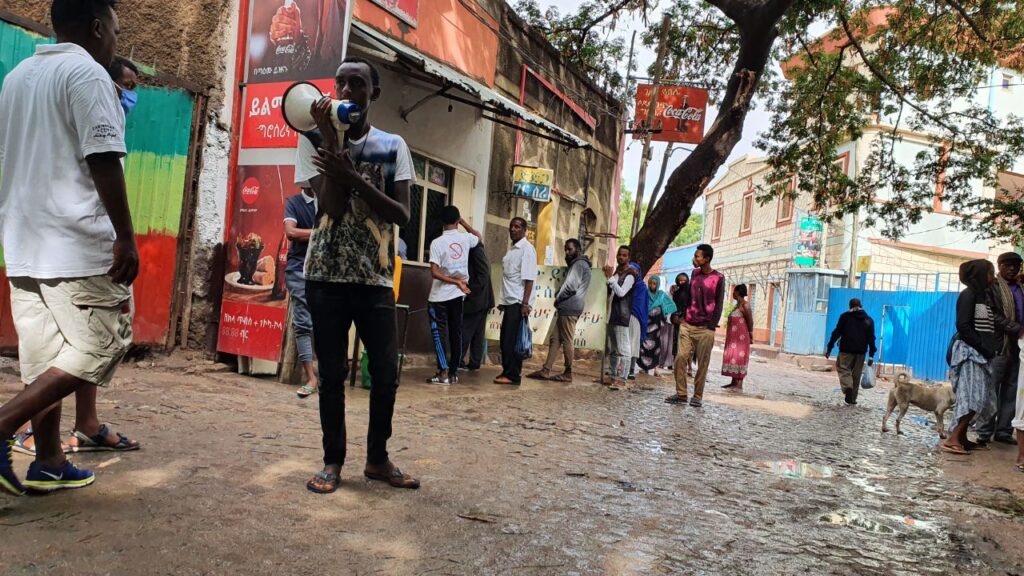
Wondwossen: I am mobilising the youth in my community to raise awareness in fighting COVID-19. My role is in developing an action plan and coordinating the efforts to ensure sustainability and effectiveness in the initiative. My team has mobilised more than 300 youth from nine kebeles (sub-cities) to sensitise the local community and donate sanitisers, gloves, and sanitary materials. It has led to the support of hundreds of people in need of help.
Are there challenges that you have faced in undertaking your activities?
We were not prepared to address the novel coronavirus, especially in the informal settlements.
Carine: Life as usual was halted abruptly due to the outbreak of COVID-19. We were not prepared to address the novel coronavirus, especially in the informal settlements. We have had to adapt our interventions to meet the community needs during this period. We also have challenges mobilising resources for the food and soap drives in the community. The myths in the community also hinder progress in our interventions.
Wondwossen: Yes, finding supplies such as sanitisers and gloves for the volunteers is a major challenge. We usually send them to teach the local community and help them get a better understanding of the nature of the coronavirus, the transmission, and the precautions to be taken. On the other hand, in areas where water shortages occurred, it has been difficult to raise awareness about hand-washing and hygiene. We, however, suggested to the Dire Dawa city administration solutions to these challenges that they could consider.
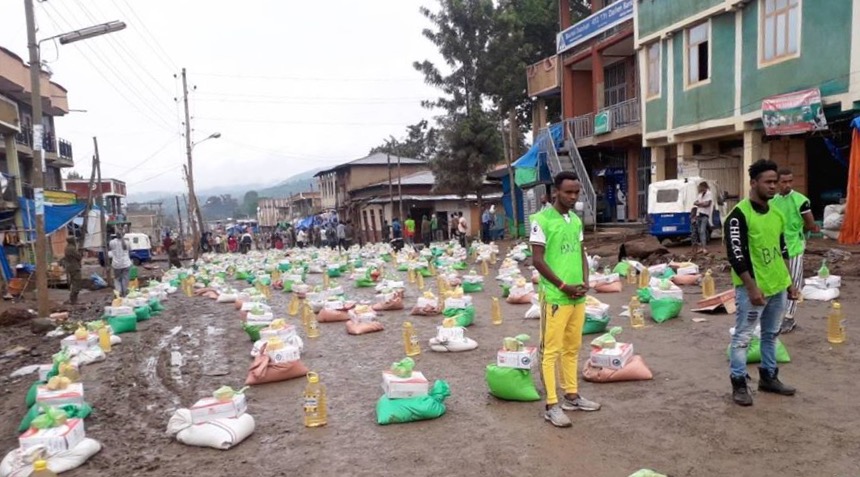
What message of hope do you have for the world today?
Love is more contagious than COVID-19.
Carine: A friend said that love is more contagious than COVID-19. The pandemic has not discriminated in its wake; we should thus be united in our response and spread hope by being our brother’s keeper. Let us remember as Martin Luther King Jr said “Whatever affects one directly, affects all indirectly.” We’ll win this if we are united in the fight against COVID-19 and combine our efforts to support the less fortunate.
Wondwossen: This is the first time that humanity is united and collaborating in its fear of a common enemy. We should apply tips and instructions that we are told by health professionals properly, and our collective action can only discover the path to the possibilities that we seek. We will rise, wiser, on a new wave of consciousness, with a sustainable mindset and humane outlook.
